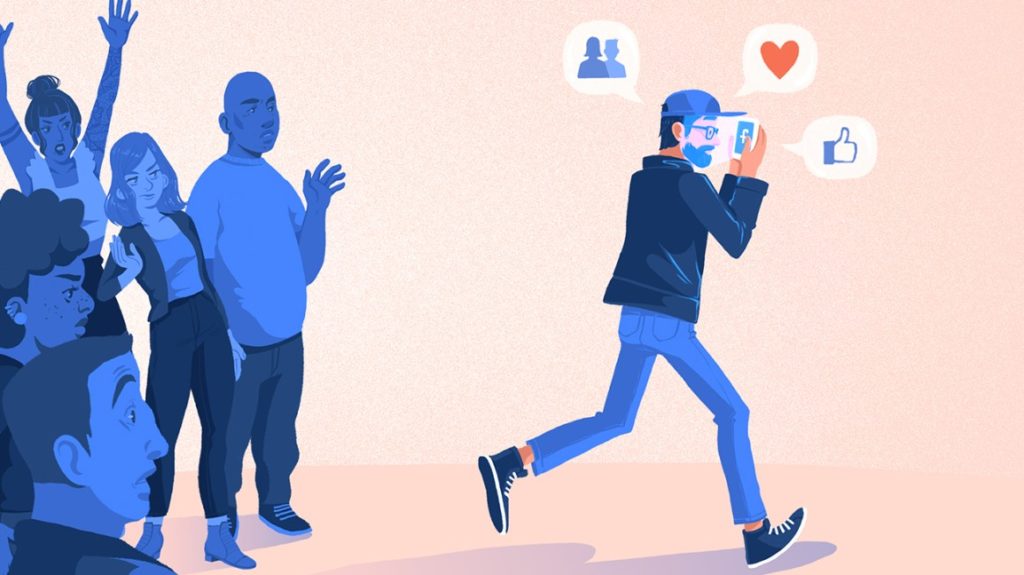
Discussions on the link between social media use and mental health are nothing new, but researchers at the University of Pennsylvania for the first time conducted a study based on experimental data that connects the causal relationship between social media use and mental well-being.
What they found was that simply limiting social media use could be beneficial when it comes to better mental health, specifically when it comes to depression and loneliness. This, given the reality that social media is not something people will stop using all together.
The findings were published in the December Journal of Social and Clinical Psychology by Melissa G. Hunt, the associate director of clinical training at the university’s Department of Psychology.
“We set out to do a much more comprehensive, rigorous study that was also more ecologically valid,” Hunt told the university’s online publication, Penn Today.
The study was conducted by randomly splitting 143 students into a control group and an experimental group. Those in the control group were asked to use social media platforms — specifically Facebook, Snapchat, and Instagram — as they usually do. The experimental group on the other hand was asked to limit social media usage to a maximum of 30 minutes per day with 10 minutes on each platform.
To measure the outcome, students completed a wellbeing survey twice — once before the study began, and again after four weeks of sticking to the assigned usage time limits (or lack thereof).
For three weeks, the students provided researchers with iPhone battery screenshots for their individual weekly tallies. They then rated seven well-being measures including fear of missing out (FOMO), anxiety, loneliness, depression, and self-esteem.
“Here’s the bottom line,” Hunt told Penn Today. “Using less social media than you normally would leads to significant decreases in both depression and loneliness. These effects are particularly pronounced for folks who were more depressed when they came into the study.”
The study found that those in the experimental group had significant reductions in depression and loneliness compared to those in the control group. Those who reported a high level of depression at the study’s start later said they experienced a “clinically significant” reduction in symptoms.
Further, both the control and experimental groups saw significant decreases in FOMO and anxiety, which researchers said could have been a result of students in both groups being more aware of their social media use by simply participating in the study.
Given the likelihood that even those in the control group would be conscious of their usage, the study found that self-monitoring and being mindful in general made a difference in mental well-being.
One student said, “I ended up using [social media] less and felt happier… I could focus on school and not [be as] interested in what everyone is up to.”
Good vs. bad social media usage
As mentioned, the link between social media and mental health isn’t new as numerous studies have come out with a variety of conclusions like how social media creates unrealistic expectations about life, makes us more envious, makes us more addicted, makes us sadder, or may even ruin our relationships.
The creators of the platforms have also taken notice, conducting their own research studies and combining them with others.
A few months ago, Facebook and Instagram even released new tools on their mobile platforms that allow users to see how much time they spend on the apps. The tools further give users options to manage their time like setting daily reminders for when they’ve reached the time limits set for themselves.
But many have pointed out that not all social media activity should be treated the same.
Facebook pointed to many studies in the past, saying that it’s passive social media usage (or “zombie scrolling”), rather than active communication with friends, that is detrimental to our well-being.
Hunt seemed to say similar in pointing out that a significant amount of time spent on social media is spent on looking at others and participating in “social comparison.”
“It is a little ironic that reducing your use of social media actually makes you feel less lonely,” said Hunt. “Some of the existing literature on social media suggests there’s an enormous amount of social comparison that happens. When you look at other people’s lives, particularly on Instagram, it’s easy to conclude that everyone else’s life is cooler or better than yours.”
While there are a few questions that can still be answered on the topic, she said the findings still offer conclusions that any social media user could use.
For example, less time spent on the platforms means less time spent making social comparisons.
“When you’re not busy getting sucked into clickbait social media, you’re actually spending more time on things that are more likely to make you feel better about your life,” said Hunt.
Given that social media is not going to go away, the study also shifts the discussion to figuring out how social media can be used without taking on the damaging effects.
“In general, I would say, put your phone down and be with the people in your life,” said Hunt.




